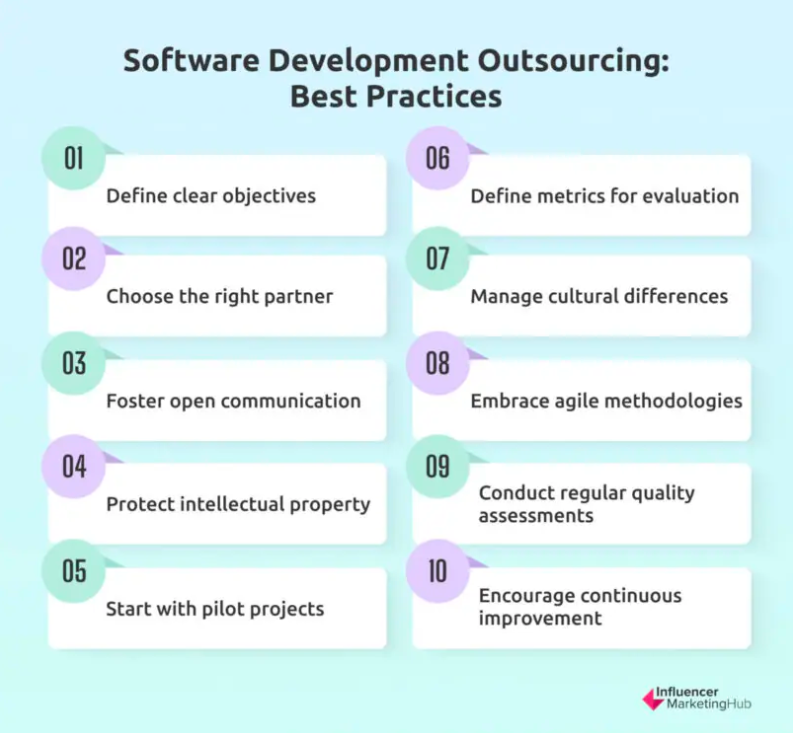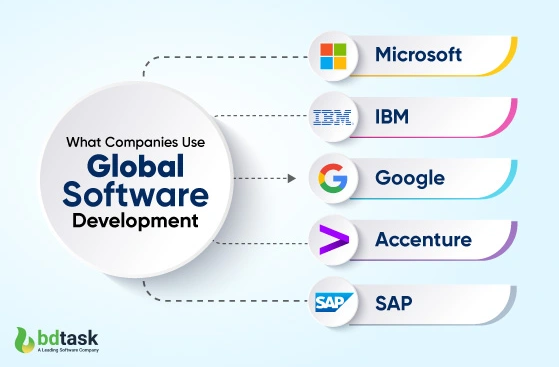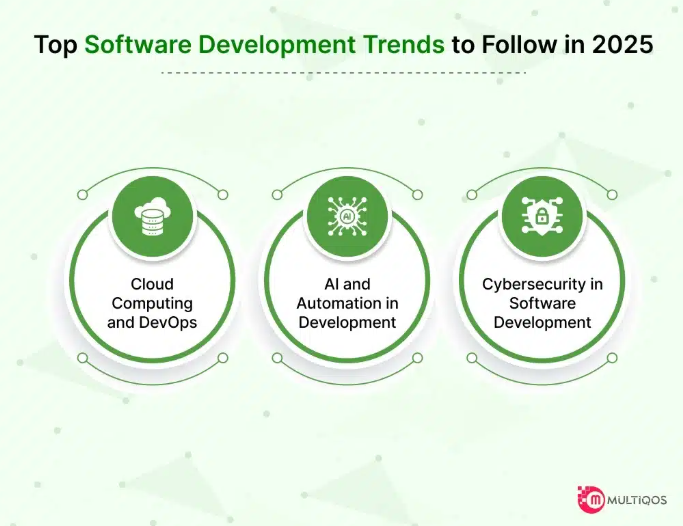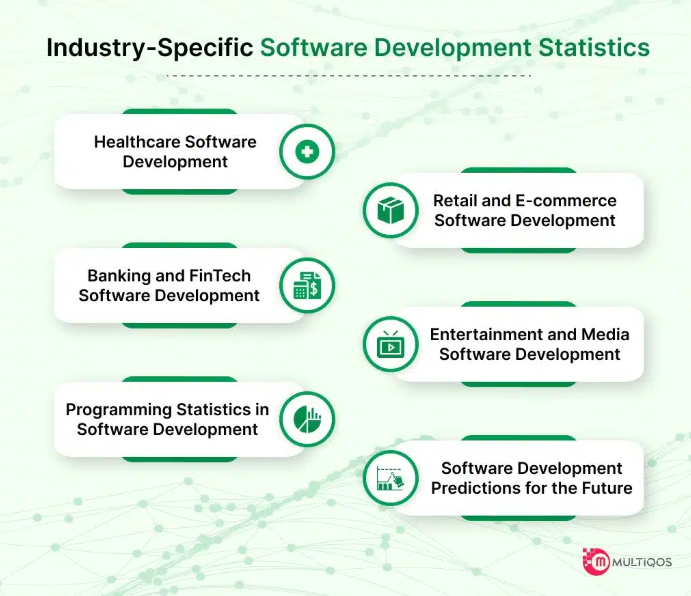

Digital transformation isn’t a buzzword anymore—it’s your reality. You already know that running your business on outdated systems slows down growth, frustrates employees, and makes customers leave for competitors who can deliver faster. What you might not realize is how directly software development services can speed up the entire transformation journey. At SKM Group, we’ve seen this firsthand. The right software partner doesn’t just give you tools. It redefines the way you compete, scale, and create value.
Let’s start with clarity. Software development services refer to professional solutions that cover the full cycle of software creation—from ideation and design to coding, testing, deployment, and post-launch support. It’s not about a single app or one-time project. It’s about a structured process that brings your business goals into the digital realm and keeps them running seamlessly.
Core Offerings of Software Development Services
When you engage a provider like SKM Group, you’re not buying lines of code—you’re buying acceleration.
The offerings usually span:
Each of these areas gives you leverage: the ability to move faster, respond to market signals, and outpace competitors.

Differentiating Program Development Services from Standard Development
Many executives confuse general software development services with program development services. The difference is in scope and ambition. Standard development might mean creating an isolated tool to solve one problem. Program development, on the other hand, is about orchestrating multiple systems into a broader initiative that drives enterprise-wide change.
Think of it this way: building one mobile app is development. Building a multi-layered logistics optimization system that aligns operations across your supply chain is program development. The stakes are higher, the architecture more complex, and the impact far greater. If your digital transformation involves structural change—and it almost always does—program development is what you really need.
Drive innovation and scalability using SKM Group’s IT services.
Custom vs. Off-the-Shelf Solutions: Which Suits Your Needs?
You’ve faced this dilemma before: Should you buy ready-made software or invest in something tailor-made? Off-the-shelf options are faster to deploy and cheaper upfront. But they rarely fit your business like a glove. They force you to adapt to the software instead of the other way around.
Custom development flips the equation. Yes, it requires more planning, but you end up with a solution designed around your workflows, your customers, your data. In industries where differentiation drives revenue—logistics, retail, healthcare, finance—customization isn’t a luxury, it’s survival. At SKM Group, we usually advise clients to use off-the-shelf only when needs are simple and non-strategic. For core systems that define your competitive advantage, custom development is the only sustainable choice.
Aligning Software Development Services to Industry Requirements
Not all industries speak the same digital language. Banking compliance, healthcare regulations, or logistics network constraints each bring unique requirements. The value of software development services lies in tailoring solutions not just to your company but also to your industry.
For example, if you’re in retail, we prioritize omnichannel customer experience and data-driven personalization. In logistics, we build platforms that reduce delivery delays, optimize warehouse flows, and provide real-time visibility. In healthcare, security and compliance with HIPAA or GDPR are non-negotiable. Without industry alignment, even the most elegant software can become a liability.
Key Deliverables and Engagement Models
When you sign up for software development services, you should expect concrete deliverables, not abstract promises. Deliverables usually include requirements documentation, system design, source code, QA test results, deployment packages, and user training. But the way these deliverables are structured depends on the engagement model you choose.
Some companies prefer a project-based model with fixed scope and timeline. Others opt for dedicated teams where the provider becomes an extension of your IT department. There are also hybrid models, giving you flexibility to scale resources as needs evolve. Choosing the right model determines not only your costs but also the speed and quality of delivery. At SKM Group, we often recommend starting small with a pilot project, then scaling into a longer engagement once trust and results are established.

Here’s where transformation hits your bottom line. In today’s global economy, supply chain resilience is no longer optional—it’s a survival factor. Disruptions are constant: raw material shortages, fluctuating freight costs, geopolitical risks. You can’t control these external shocks, but you can control how your systems respond. That’s where supply chain software development services come in.
By investing in tailored supply chain solutions, you gain real-time visibility into inventory, shipment tracking, and supplier performance. You can automate procurement, forecast demand with AI, and reroute logistics in minutes instead of days. More importantly, you can reduce operational costs while increasing reliability—two outcomes that directly affect your profitability.
Think of it as moving from reactive firefighting to proactive orchestration. Instead of waiting for disruptions to hit, you’re already equipped with predictive insights and automated workflows that keep operations flowing. For companies with complex distribution networks, this isn’t just efficiency. It’s competitive defense. Your rivals who ignore digital supply chain optimization will find themselves stuck in outdated cycles, while you operate at digital speed.
Once you recognize the strategic role of program development services, the next question becomes: How do you choose the right partner? The reality is that providers vary dramatically in competence, transparency, and delivery models. Selecting the wrong vendor can derail your transformation, waste millions, and set you back years.
Start with domain expertise. Has the provider built systems for companies in your industry? Do they understand your regulatory environment, your operational bottlenecks, your competitive landscape? At SKM Group, we’ve found that domain knowledge often outweighs raw coding skills. A partner who understands your world will propose solutions you didn’t even know were possible.
Next, evaluate methodology. Are they agile in practice, not just in marketing brochures? Do they embed software development quality assurance from day one? Ask to see their track record: case studies, performance metrics, post-launch support commitments. And don’t underestimate cultural fit. A partner that communicates clearly, adapts to your style, and shares your vision is worth far more than one that treats you as another contract.
Streamline your operations through professional IT outsourcing.
If digital transformation is the engine, software development quality assurance (QA) is the oil. Without it, even the most ambitious systems break down. QA isn’t an afterthought. It’s a discipline that ensures every line of code, every integration, every release meets rigorous standards before it touches your business operations.
Definition and Importance of Software Development Quality Assurance
Software development quality assurance goes beyond traditional testing. It’s a proactive, process-oriented approach that ensures your software is reliable, secure, and scalable from the earliest design stages. Why does this matter to you? Because every bug in production costs exponentially more than one caught in development. QA safeguards not just the software but your reputation, your customer trust, and your compliance obligations.
QA Methodologies and Industry Standards
There’s no single recipe for QA, but methodologies like ISO 9001, CMMI, and ISTQB define global standards. Agile testing frameworks, continuous integration/continuous deployment (CI/CD), and DevOps pipelines integrate QA seamlessly into development. At SKM Group, we combine manual testing for complex scenarios with automated suites for repetitive tasks. The goal isn’t just defect detection—it’s continuous assurance of business value.
Embedding QA Throughout the Development Process
The mistake many companies make is treating QA as a final step. In reality, it must live at every stage of the lifecycle. During requirements gathering, QA ensures clarity. During design, it validates architecture against performance benchmarks. During coding, it enforces clean practices. During deployment, it secures environments and tests resilience. Embedding QA means problems are prevented before they exist.
Automation Tools for Software Development Quality Assurance
Automation has transformed QA into a strategic accelerator. Tools like Selenium, JUnit, or TestComplete allow thousands of test cases to be executed in minutes. But automation isn’t just about speed. It ensures consistency, eliminates human error, and allows your teams to focus on higher-value analysis. Automation also supports continuous monitoring post-deployment, so your systems are never blind to evolving risks.

Tracking Software Development Quality Metrics
How do you measure software development quality effectively? By tracking metrics that reveal performance and reliability. Common indicators include defect density, test coverage, mean time to repair (MTTR), and user satisfaction scores. A good provider will make these metrics transparent and actionable, so you can see exactly how your investment translates into operational stability.
Here’s the dilemma you face: build in-house or outsource? Outsourcing software development services makes sense when speed, cost-efficiency, or access to rare expertise matter most. If your internal team lacks specialized skills—say, in AI, blockchain, or advanced logistics analytics—outsourcing fills the gap quickly.
It’s also the right move when you need scalability. Instead of hiring a permanent team you may not fully use, outsourcing lets you flex resources up or down based on project needs. The key is timing. Outsource when the opportunity cost of waiting outweighs the risks of external collaboration. In other words, when delay means lost revenue, missed market share, or declining customer loyalty, outsourcing becomes not just smart, but urgent.
Let’s be direct: superior software development quality pays for itself. High-quality systems reduce downtime, cut maintenance costs, and improve user adoption. More importantly, they create customer trust. A client who enjoys flawless digital experiences is far less likely to churn.
From a financial perspective, quality reduces total cost of ownership (TCO). You spend less on firefighting, patches, and emergency fixes. From a strategic angle, quality ensures scalability—you can expand into new markets without breaking your systems. And from a compliance perspective, it reduces legal and regulatory risks. When you see quality not as a cost but as an investment, your ROI multiplies.
At this stage, you’re convinced of the “why.” Now comes the “how.” Choosing the right partner is where strategy meets execution.
Assessing Technical Expertise and Domain Experience
Look beyond generic portfolios. Ask whether the partner has solved problems like yours. At SKM Group, we often show clients how our prior projects map directly onto their challenges. That kind of alignment is far more valuable than flashy but irrelevant credentials.
Reviewing Track Record in Supply Chain Software Development Services
If your transformation involves logistics, verify experience with supply chain software development services. Look for evidence of systems that improved visibility, reduced costs, or enhanced resilience. This is one of the best predictors of how effectively the partner can address your needs.
Verifying Software Development Quality Assurance Processes
Don’t take QA claims at face value. Request documentation of QA frameworks, see sample test reports, and understand how they handle defect management. Providers who treat software development quality assurance as core, not optional, are the ones you can trust with mission-critical systems.
Defining Clear SLAs and Communication Protocols
Clarity avoids conflict. Define service-level agreements (SLAs) that cover delivery timelines, response times, uptime guarantees, and reporting obligations. Communication protocols are equally vital: how often will you receive updates, in what format, through which channels? Transparency keeps projects aligned and trust intact.
Ensuring Robust Post-Delivery Support and Maintenance
Your journey doesn’t end at deployment. Post-delivery support ensures that bugs are fixed, upgrades are implemented, and your systems adapt to evolving needs. The best providers offer long-term maintenance contracts that feel less like after-sales service and more like continuous partnership.

Digital transformation isn’t about technology—it’s about strategy. But technology is the lever that makes strategy real. By choosing the right software development services partner, you accelerate not just implementation but long-term growth. At SKM Group, we believe transformation should pay dividends: faster operations, happier customers, stronger resilience, and measurable ROI. The question isn’t whether you should invest. It’s how soon you want to start reaping the benefits.
Solve complex challenges with our expert custom software development.
Software development services provide the technological foundation for modernizing business operations. They build tools that automate workflows, improve data accessibility, and enhance customer engagement. Custom software integrates diverse systems into one cohesive ecosystem. These services bridge traditional operations with emerging technologies like AI and IoT. In essence, they translate digital vision into functional, transformative solutions.
By leveraging Agile and DevOps practices, development services enable rapid innovation and adaptation. Businesses can test new ideas quickly and pivot without significant disruption. Continuous delivery pipelines ensure faster deployment of updates and features. This agility allows companies to respond swiftly to market shifts. In today’s economy, adaptability equals competitive survival.
Custom-built platforms integrate analytics and reporting tools that turn raw data into actionable insights. They centralize data from multiple sources, improving accuracy and visibility. Real-time dashboards empower executives to make informed strategic choices. Predictive analytics help identify trends and opportunities early. Through intelligent software, businesses transform data into measurable growth.
Emerging technologies like AI, cloud computing, and automation redefine productivity and efficiency. Integrating them through software solutions optimizes operations across departments. For example, AI can automate customer service while IoT enhances supply chain visibility. Cloud-native applications improve scalability and collaboration. These technologies collectively drive innovation and long-term value creation.
Custom software eliminates inefficiencies by automating repetitive processes and consolidating platforms. Cloud migration reduces infrastructure expenses and maintenance overhead. Outsourced development services provide flexible resource allocation, avoiding full-time staffing costs. The long-term savings far outweigh initial investments. Efficient digital systems become key drivers of profitability.
Success requires aligning technology initiatives with business goals. Clear strategy, stakeholder buy-in, and phased implementation are critical. Partnering with experienced development teams ensures technical precision and scalability. Regular feedback loops keep projects aligned with evolving needs. A disciplined, collaborative approach transforms software from a tool into a growth catalyst.
Need tailor-made software? We build scalable, secure solutions from scratch.
Discover more
Comments